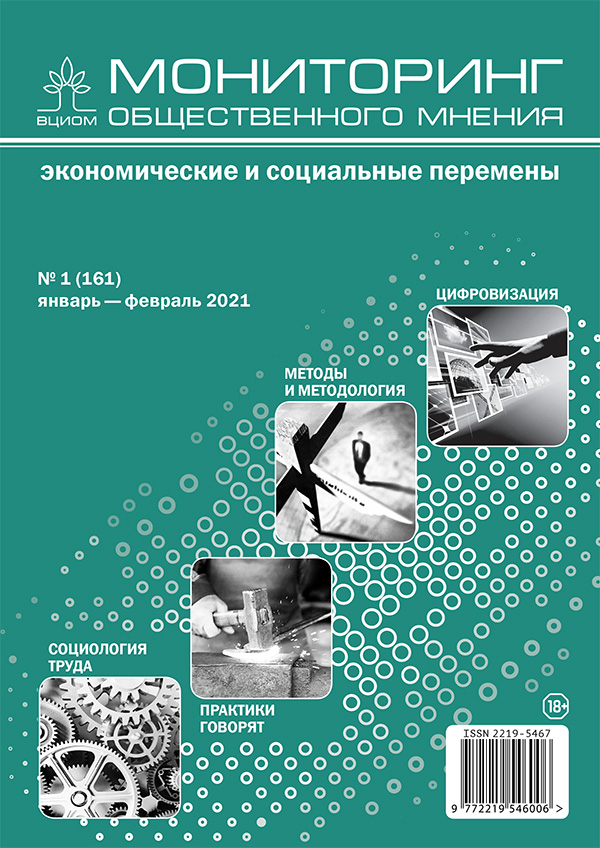Digital Society: Theoretical Model and Russian Reality
DOI:
https://doi.org/10.14515/monitoring.2021.1.1790Keywords:
digital society, digitalization, platformisation, big data, digital divide, RussiaAbstract
The article considers a theoretical model of digital society based on four concepts: super-connectivity, platformisation, datafication, and algorithmic governance. The model describes how the digitalisation of society deepens: from the transfer of individual practices and social interactions to a new social order based on big data. Analysis of panel data from the 2003–2018 longitudinal survey (RLMS HSE) and geospatial data from the ‘Virtual population of Russia’ project shows that, despite considerable growth in specific indicators, the digitalisation of the Russian society across various social groups, territories and areas of public life appears fragmented. Elimination of this disparity is primarily hindered by the low stability of an individual’s online practices. Analysis of the national projects approved in 2018 helped assess the prospects of the digital society in Russia and identify barriers to public adaptation to the changes.
Acknowledgments. The study was funded by the Russian Foundation for Basic Research (RFBR) and the Belarusian Republican Foundation for Fundamental Research (BRFFR), project no. 20-510-00007.
Downloads
Published
How to Cite
Issue
Section
License
Copyright (c) 2021 Monitoring of Public Opinion: Economic and Social Changes Journal (Public Opinion Monitoring) ISSN 2219-5467

This work is licensed under a Creative Commons Attribution-NonCommercial-ShareAlike 4.0 International License.






